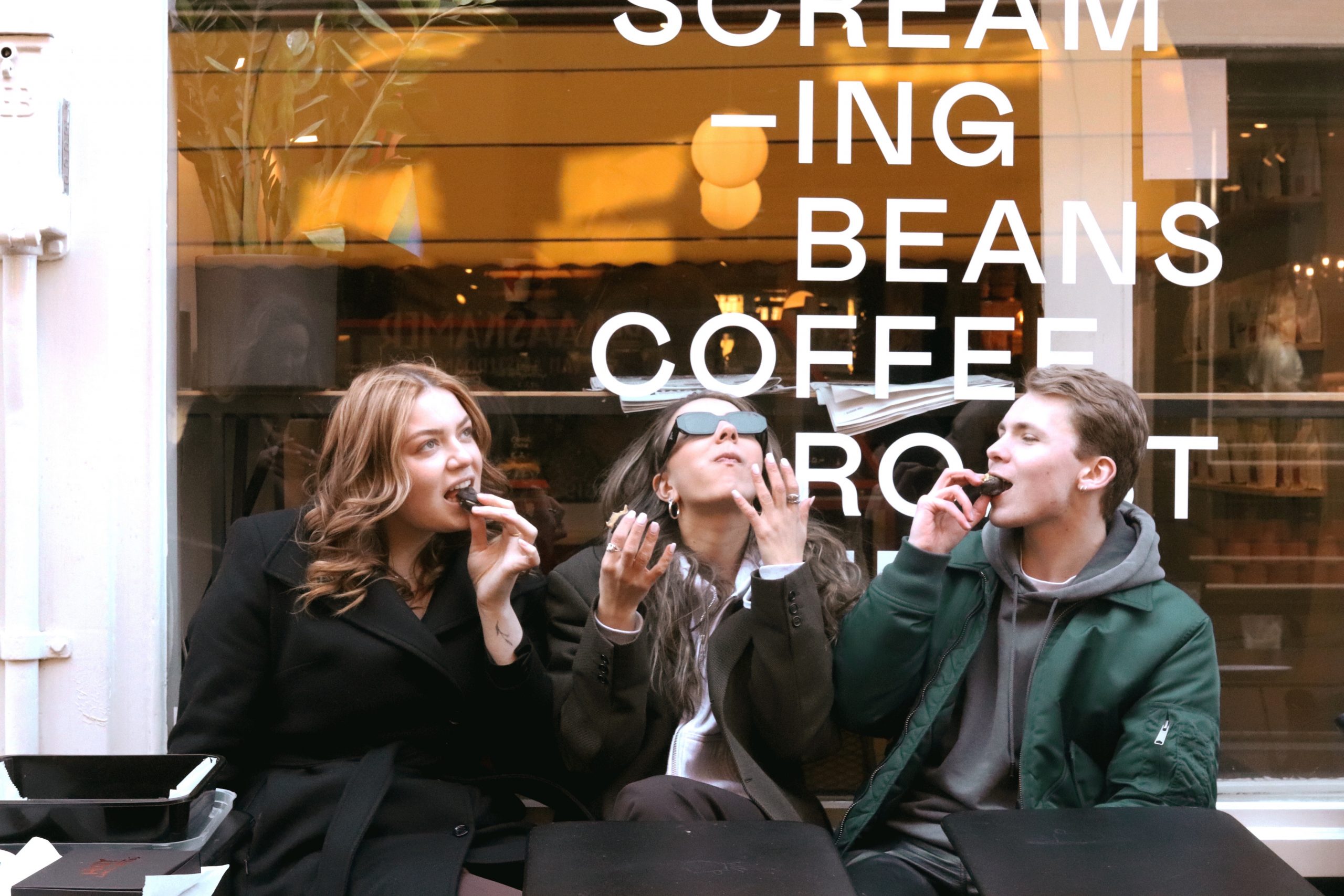
Coffee and Chocolate: A Match Made in Heaven
Chocolate. How do you see it? A “naughty” treat after a long day? Something that’s part of your daily diet? A source of enjoyment? We think that chocolate is a great match for our coffee, a match made in Heaven! So much so, we decided to partner with Holy Chocolates to create a vegan espresso chocolate that is made with our very own Ethiopia, Guji Omniroast bean. In preparation of our collaboration launch this month, we spoke to Amalia Talei, the founder of Holy Chocolates, to discuss all things coffee and chocolate! In this interview we discuss the birth of her business, the amazing similarities between chocolate and coffee and the future of vegan products.
“I cannot wake up without coffee and I can’t go to bed without chocolate!”
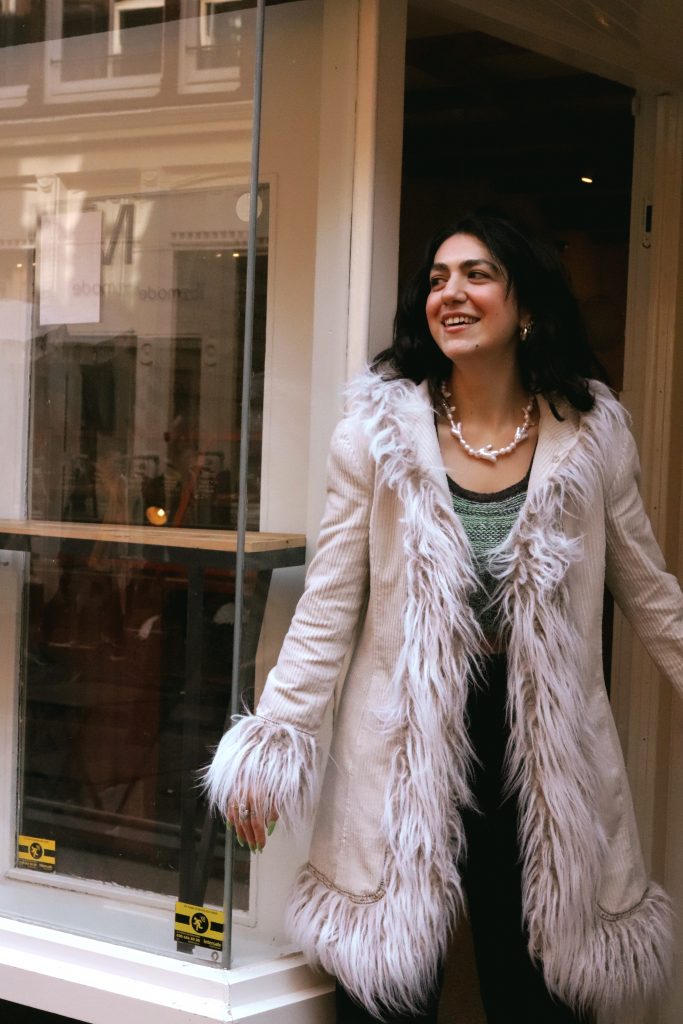
So Amalia, you’ve worked on our very own vegan espresso bean chocolate! Do you think the worlds of coffee and chocolate are similar?
I definitely see that they are very close to each other. I think that they both have misconceptions surrounding them. For example, people may see them both as unhealthy. It’s funny because when people find out that I work in the chocolate business they say ‘oh you must be eating sugar all the time’. What people don’t realise is that raw chocolate can actually have health benefits. Similarly, I also think small amounts of coffee can bring health benefits for your heart, as long as you don’t overdo it! Having up to three cups of espresso a day is actually scientifically proven to be good for your heart health.
Coffee and chocolate are also super similar in their processes of harvesting, and the flavour profiles of the beans. The cacao beans are crushed, fermented and washed until you can process it into something that’s edible, or drinkable. The flavour really depends on the beans country of origin. If you taste the crema of an espresso shot, or if you have a dark bar of chocolate, you are able to taste some resemblance of the acidity or nuttiness of its origin. At Holy Chocolates we do a bean to bar process so the flavour of the bean really depends on where it comes from just like coffee. The beans we currently use for our chocolate are from Belize, the Mayan bean has the aroma of pineapple, honey and nutty tones.
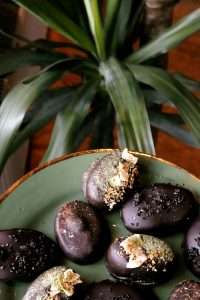
Coffee and chocolate are also great for bringing people together. It’s one of my favourite ways of socialising and reminds me of the song, ‘The Pleasure Principle’, by Janet Jackson. I see coffee and chocolate as a form of self care, as a daily routine. For me personally, consuming the two is often a joyful experience, yet it’s also a routine as I cannot wake up without coffee and I can’t go to bed without chocolate! So much of our lifestyle here in Amsterdam is about meeting up with friends and enjoying good coffee and food. Meeting up with people of different nationalities and sharing our lived experiences is what really connects people. I love the cosy, intimate setting of Screaming Beans that enables people to share our chocolates and coffee with their families, friends, colleagues, even with strangers.
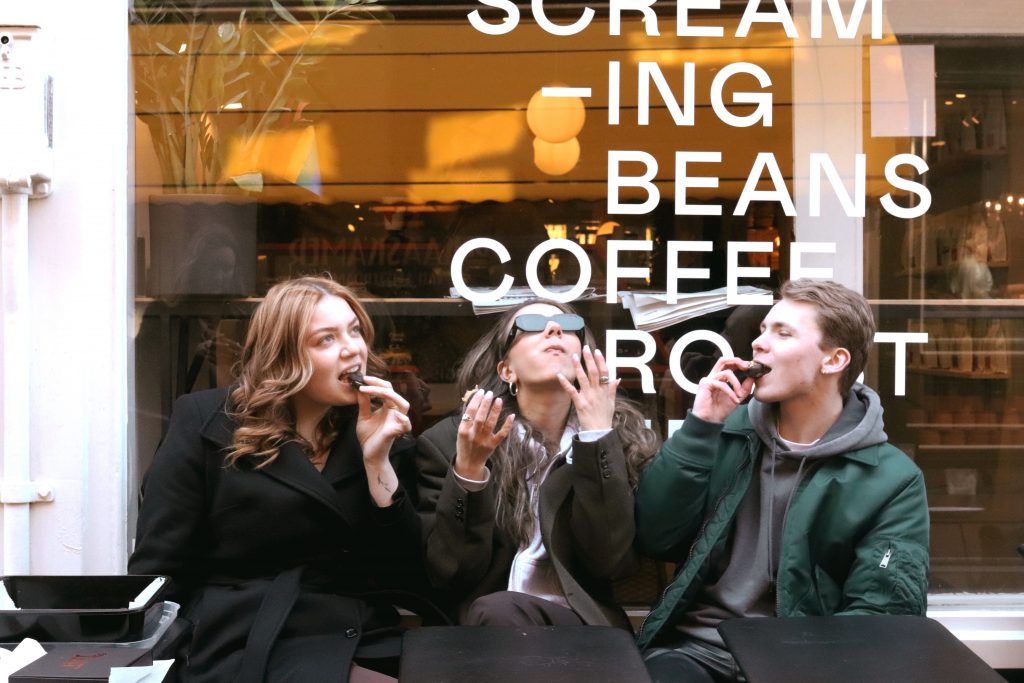
What was the inspiration behind Holy Chocolates?
Well it started from my love of dark chocolate and my previous experience as a plant based chef. I decided to combine my love of raw dark chocolate with my knowledge, and I made a few samples for my friends. They instantly loved them and placed orders for Christmas. When I started a course in plant based nutrition I realised that the main components in raw cacao and cacao butter are actually very beneficial to your health. It’s a very good anti-inflammatory and it contains a lot of antioxidants that are good for driving out other toxicants from other foods in your body.
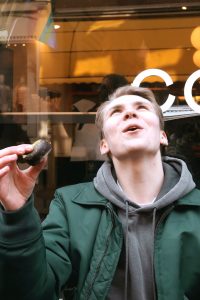
The problem with the current consumption of most chocolate from regular supermarkets is that the components in the chocolate are often over-processed. What is left is mainly just milk powder or sugar, and you don’t reap any benefits from the cacao. So, that’s when I started researching more about raw chocolate, and I realised that there was still a lack of sensation when it came to taste and structure. I wanted to make sure I was doing something for the cacao industry as it is one thing to have a product that’s interesting, but it’s another to have a product that will change something, otherwise you’re just contributing to mass production, which concerns me. Since creating Holy Chocolates, I have learnt more and more about herbs and plants that are healing and nurturing and how you can compliment all these components with cacao, how to get chocolate back to its original “superfoodness” if you can call it that.

So would you class your chocolates as a superfood?
Yes I would. The core components are all based around healthy fats for your heart and products that really help your gut. It is based around the philosophy of helping your body because when you think of a pick me up treat or a sweet treat, it’s usually because you’re feeling fatigued, and you crave something nice and sweet. But, the after effects of the crash and burn is something that we want to avoid and build around by having a chocolate product that makes you feel good emotionally, and physically.
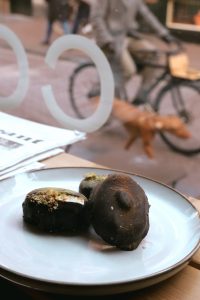
Why do you think Vegan chocolate is important today?
Well, I first and foremost want to say that I don’t think vegan always means that it’s sustainable, ethical or healthy, and I do think that there’s a lot of false advertising around the word vegan. Moving forward, we do need to look at plant resources and see what we can create from plants that are already there. We don’t need to create more lab produced products, I think nature already provides us with quite a lot but we need to reduce the amount that we are producing and creating. As I said, when you go to a supermarket most of the chocolates, pralines, caramels are over-processed and just contain milk powder. There are alternatives to these chocolates such as 80% dark chocolate bars, yet this bitterness may be a bit too blunt for some. So it’s easier to go for the non-plant based option, meaning there is a lack and need for more options. Therefore, I think vegan products are important for today’s market as it creates options for those who need, or want it. For example, it really opens up the market for people with allergies, or people who want to steer away from animal products.
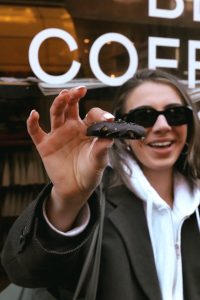
Is there a shift in people’s opinions on buying vegan products? For instance, at Screaming Beans, our customers now order alternative milk more than regular cow milk. Do you think people are explicitly and actively choosing vegan products?
I think there has already been an ongoing shift, especially in capital cities. I think Amsterdam is a great city for pioneering new trends, for example the way veganism has become a slight trend throughout the last few years. I do think it is a really positive influence and trend, but I don’t think that the fact that it is vegan should be the sole purpose of why someone buys a product. It should be that vegan products are just there like any other product and the fact that it is vegan should only be like a side benefit to the product.
I think there has been a shift because people like to know what they are eating and where their food comes from. It’s good that new vegan products are emerging but I am concerned about the false advertisement. There could be a potential problem with this shift as often vegan products and products that are branded as ‘healthy’ are expensive so people cannot afford them.
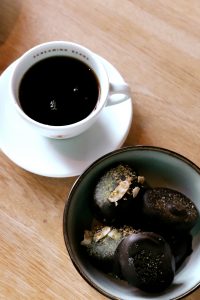
Is your chocolate making process similar to how they make regular chocolate?
I would say it’s similar to how they made chocolate originally in places like Mexico. The chocolate is made with two stones that come together as a wet grinder that constantly churn in a machine, grinding the cacao beans in a paste. The paste is then combined with cacao butter, a chosen sweetener and sometimes dates or maple. Dates are a great alternative to refined sugar as they are already so sweet. They add to the flavour profile and aid the acidity of the chocolate. It makes you think ‘why do we use refined sugar in regular supermarket chocolate’? Because it’s cheap? We definitely didn’t take the easy production route as there is a lot of hand craft that goes into it! It’s a long process so that’s why it is slightly more expensive to produce.
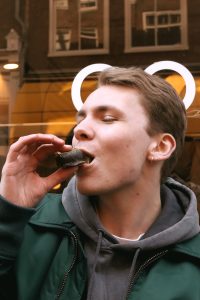
What do you think the future of chocolate, and even coffee, will look like?
I think that attitudes will definitely switch from quantity to quality. During the pandemic, people were forced to focus on the basic essentials like sleep, what they are eating and basic human connection. Post-pandemic, I think people are paying more attention to the quality of what they are eating, the health benefits of foods, and also the human connection that coffee and chocolate provide.
People want to know who they are supporting, what they’re eating, where it comes from, what impact it’s having, where their money is going. That definitely correlates back to chocolate and coffee. Paying more attention to the quality of chocolate and coffee will enhance the social aspects that we talked about. For example, people will get pleasure out of consuming these products knowing that they have supported a small business that sell good quality products, one that resonates with your core beliefs or ethical values.
Our super tasty vegan Ethiopia Guji espresso chocolates that we have worked on with Amalia, and Holy Chocolates are now available in store! If you would like to know more about the chocolates, or this collaboration email us on [email protected] or follow us, and @holychocolates on Instagram!